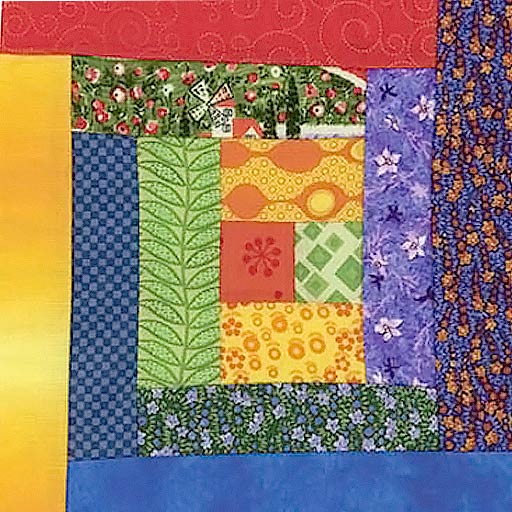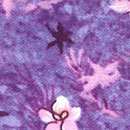“Live affectionately as Friends, entering with sympathy into the joys and sorrows of one another’s lives. Visit one another. Be alert to give help and ready to receive it. Bear the burdens of one another’s failings; share the buoyancy of one another’s strengths.”
Advices, PYM Faith and Practice, 2002
My Grandfather lived to the very old age of 98. He retired before I was born, moved in with us when he was in his eighties. He passed his days gardening in the shade, engineering contraptions to keep squirrels out of the birdfeeder and making current jam. He spent his nights reading and occasionally playing pool. He had a sturdy heart, and a few minor physical health issues, which meant occasional forays into the hospital and a hearing aid he rarely wore. In the years he lived with us a progressive dementia led him to repeat stories and wander, always in the same direction, following the creek and ending up in a neighbor’s back yard.
Adjusting to Grandpa’s challenges was not difficult, at least from a child’s perspective. We tuned our voices to accommodate his hearing loss, followed his tracks in the woods, accompanied him in the grocery store and accepted that he always bought the same three things, regardless of need. These adaptations I remember, largely by repetition. However, the smell of his mended cardigan, the brown felt of his ancient hats, they way he seemed as much a part of the woods as the trees themselves, those memories are ingrained in my very being. His setbacks were not recorded in my bones like the humus of leaf mold we used to bed the ferns for the winter. I suppose his gait slowed, but I could not describe that in the detailed way I can the sour of currant before it was sugared in the pot, the thrill of cold creek water on bare feet, and how it soaked the hems of our pants. I remember in detail the way he treasured his few possessions – the photographs of family and his son’s scrapbook of writing, how one gumdrop from the glass jar was precious, and enough. The changes that came to grandpa with illness and age were an accepted part of his and our routine. It is his essential teachings that shaped and formed me.
If we are lucky, we have a relationship with an elder or the memory of one to treasure. Yet we live in a complicated time. The values of our family and faith community about how we view older adulthood may conflict with messages in our fast-paced society that promote youth and productivity. We are encouraged to resist even the natural physical signs of our ripening to old age, smooth our wrinkles, subdue the silver in our hair, and keep moving. These messages suggest that growing older is a decline, and we may question our own purpose as we age. We know that despite any number of challenges, our elders are precious. How can we come to hold our own aging in the light that we view those who came before us?
“In primitive tribes we observe that the old people are almost always the guardians of the mysteries and the laws, and it is in these that the cultural heritage of the tribe is expressed. How does the matter stand with us? Where is the wisdom of our old people, where are their precious secrets and their visions?”
Carl Jung, “The Stages of Life”
Today, these questions raised in Carl Jung’s essay diverge from the messages of popular culture that promote eternal youth and productivity. Suggestions that we must look young saturate us, we are supposed to stay active, buy and produce, and there is little to encourage us to examine values or pass on wisdom. As Friends, our beliefs and values about growing old may contrast with much of what we experience in the larger world.
Examples of the preponderance of messages against aging abound on television, magazine ads, and on the internet. December 18, 2009, simple internet searches yielded the following:
- “Anti Aging products”: 48,300,000 results
- “Look Younger”: 70,500,000
- “values”, “aging”: 12,500,000
- “spirituality”, “aging”: 6,500,000
- “Values in Aging”: 672.
In an attempt to be more specific, a search for “Quakers”, “Aging” and had a hopeful 270,000 results, only to discover that many had to do with (sorry, Friends) recipes calling for Quaker Oats. (Note: to their credit, articles related to aging on the Quaker Oats website talked about nutritional and exercise needs at various stages of life, and did not emphasize an unhealthy obsession with staying young.) Considering that much of the results for the search “values”, “aging” included advertisements for “Anti-Aging Value Packs”, numerous articles on marketing for older adult housing, and at least one story about an aging sports stars ”losing value”, the priorities, at least related to what is promoted and talked about on the internet, are evident. Instead of befriending the ripening that comes with age and cultivating all that has to offer, we are encouraged to fight the natural process of aging as if it is an enemy.
Print or internet advertising and television commercials may not have as much influence on Friends and others who are clear in their values or who intentionally avoid media where such things are rampant. However, we cannot ignore the widespread impact of media messages on the world around us, nor can we ignore that these messages not only influence our culture, but also reflect it. We live in a world of unrealistic expectations, and the focus on eternal youth blurs the voices of the aged and diminishes the value of old age.
“If we take seriously the nurture of our children in the worshiping group, we must start re-appraising the whole life of the group. What kind of communication exists between us all? Do we know one another as people sharing joys and sorrows?…Are we across all ages a community learning together? Do we constantly look for experiences that can be shared by the whole community?…”
Peggy McGeoghegan, 1976 PYM Faith and Practice, 2002
We are at risk of neglecting the vital contribution elders can make: seasoned wisdom, institutional memory, historical lessons, and gentle perspective that develops over time. As much as we cherish our grandparents and elder community members, we cannot deny that for many, an aura of anxiety about aging and diminishment shrouds our view of the elderly.
This anxiety may block our access to the heart of the person within the aging body. We hear only the weakened voice, not the wisdom it speaks. We lose sight of the person as if they are gone with their lost memories, and miss the precious focus of this moment in their lifetime. In our communities, we segregate the most frail and needy, providing care and comfort, but often forgetting that this person has something to contribute to us as well. Unless we recognize the worries and stigma that affect our individual responses to the elderly and others who face challenges, we will have difficulty finding a healthy acceptance of aging that allows us to make the most of our own lives and relationships.
Is Aging an Option?
This question appeared as a pop-up ad on my computer screen after I had conducted the series of age-related internet searches. Though the advertisement suggests otherwise, aging is not an option. We all have been aging since we were born and we will continue to do so until we die. None of us knows what lies ahead on our path through the journey of aging. If we live long lives, as most people do nowadays, we may reach a point where we are no longer productive economically, or perhaps we are more physically, cognitively, or emotionally dependent on others. Does accepting aging and other challenges mean we resign ourselves to a segregated life of leisure while others carry on the “real work”? What then, is our role to be?
LINKS TO MORE INFORMATION: Click on the blue text below to be directed to outside websites that offer additional information on this topic. Articles from this site will open in the same browser window/tab. Articles from other websites will open in a new window; when you are done, simply click out of that window and you will be back on this site.
More articles on this website:
Celebrating Aging in Your Faith Community
Celebrating Lives and Life Stories
Generational Relationships: Advices and Queries
Older Adulthood and Stewardship of the Environment
Other Articles/Links:

